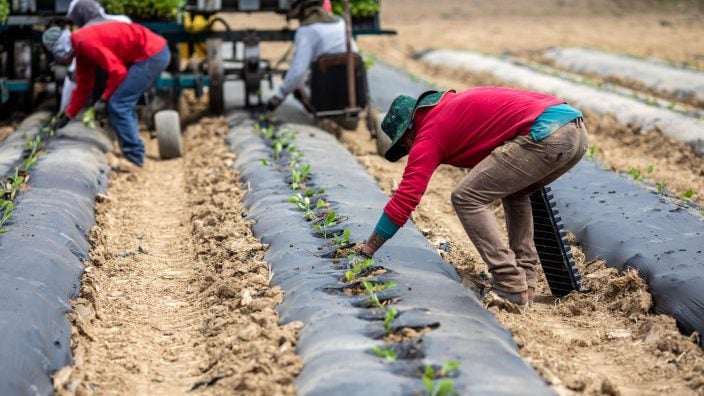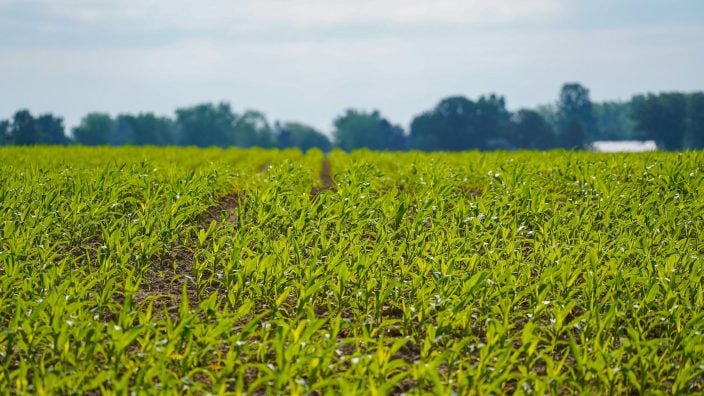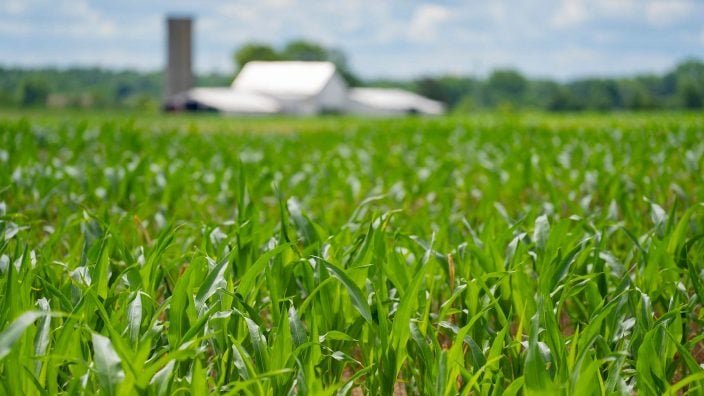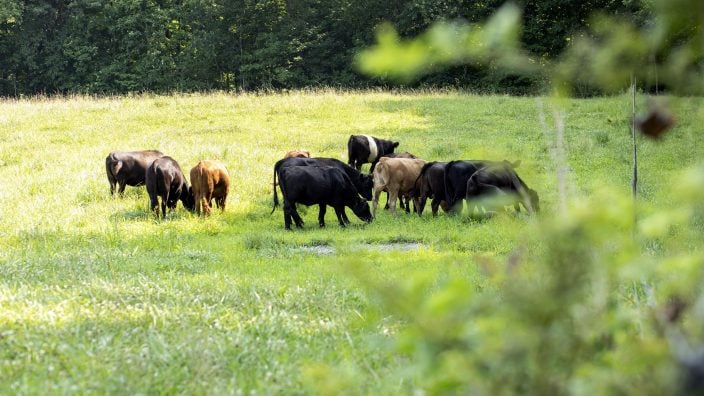The Ohio Agriculture and Rural Communities 2026 Action Plan
The plan provides a blueprint for policymakers and Ohio Farm Bureau members to bolster Ohio’s agriculture industry and our rural communities.
Read MoreConsumers are paying higher prices at the grocery for beef, pork and poultry, and the four largest meat packing companies are making record profits, yet the farmers in the middle are losing money.
Consumers are paying higher prices at the grocery for beef, pork and poultry, and the four largest meat packing companies are making record profits, yet the farmers in the middle are losing money.
In a report from the U.S Department of Agriculture, it is estimated that since December 2020, average grocery store prices for beef, pork and poultry have risen by 14%, 12.2%, and 6.6% respectively, while farmers are losing hundreds per head on livestock sold to a limited number of consolidated meat processors.
The limited number of processors for the nation’s protein supply also caused a bottleneck during the early stages of the pandemic in 2020, which led to a meat supply shortage in some areas of the country.
USDA is aiming to reverse those trends by promoting more competitive practices to drive more price transparency and a more competitive market.
“Anywhere from 55%-85% of the market is controlled by the top four producers,” Brian Deese, director of the National Economic Council, said during a news conference with U.S. Secretary of Agriculture Tom Vilsack. “When you see that level of consolidation and price increases, it raises a concern about pandemic profiteering. It isn’t benefiting farmers and ranchers that are growing the product.”
USDA wants to eliminate those impacts on farmers and consumers by focusing on four specific areas:
“Goal No. 1 is to make sure farmers get a fair return for their efforts and capital investment, and the second goal is to make sure when consumers go to the grocery store consumers get fair prices,” Vilsack said.
To meet those goals, USDA and the Justice Department are currently carrying out a price-fixing investigation aimed at the poultry-processing industry, which has produced $107 million in payouts through a number of indictments.
Also, earlier this summer, USDA announced it would issue new regulations under the Packers and Stockyards Act, which will make it easier for farmers to bring claims and implement anti-retaliation protections for those who speak out about bad practices, among other regulations.
The USDA also will consider new rules about “product of the USA” labels and how it determines which meats can bear that phrase.
During the news conference, Vilsack shared an account from a farmer who told him he took a hit of $150/head on his cattle but the processor made $1,800/head.
“We need a much more fair and resilient (meat processing) system,” Vilsack said.


The plan provides a blueprint for policymakers and Ohio Farm Bureau members to bolster Ohio’s agriculture industry and our rural communities.
Read More

Leah Curtis joins this Legal with Leah to talk about what data centers mean for local communities and how to stay engaged in the development process
Read More

A recent state budget fix and a federal rule reform to H-2A have resulted in some relief for farmers who use the guest worker program.
Read More

Ohio Farm Bureau advocated for a change in the law to allow family members and employees to handle pesticides while under the supervision of a licensed applicator. The rules around HB 10 are being finalized.
Read More

Four property tax reform bills were signed into Ohio law at the end of 2025. Ohio Farm Bureau Associate General Counsel Leah Curtis breaks down the bills and what the changes mean for Ohioans.
Read More

A proposal to import beef from Argentina comes on top of the government shutdown and ongoing economic pressures facing agriculture.
Read More

Any unlicensed handlers who use restricted use pesticides will need to have additional training. Farm Bureau will be working on legislation to give employers a choice on how to provide training.
Read More

After nearly 100 days of traveling the nation and visiting directly with hundreds of farmers across America, U.S. Secretary of…
Read More

Over 20% of all the production in the United States from agriculture gets exported to a different country.
Read More

On this Ohio Farm Bureau Podcast, get an update on challenges borrowers are facing in 2025 from experts at Ag Credit and find out how the current state of agriculture is affecting the organization.
Read More